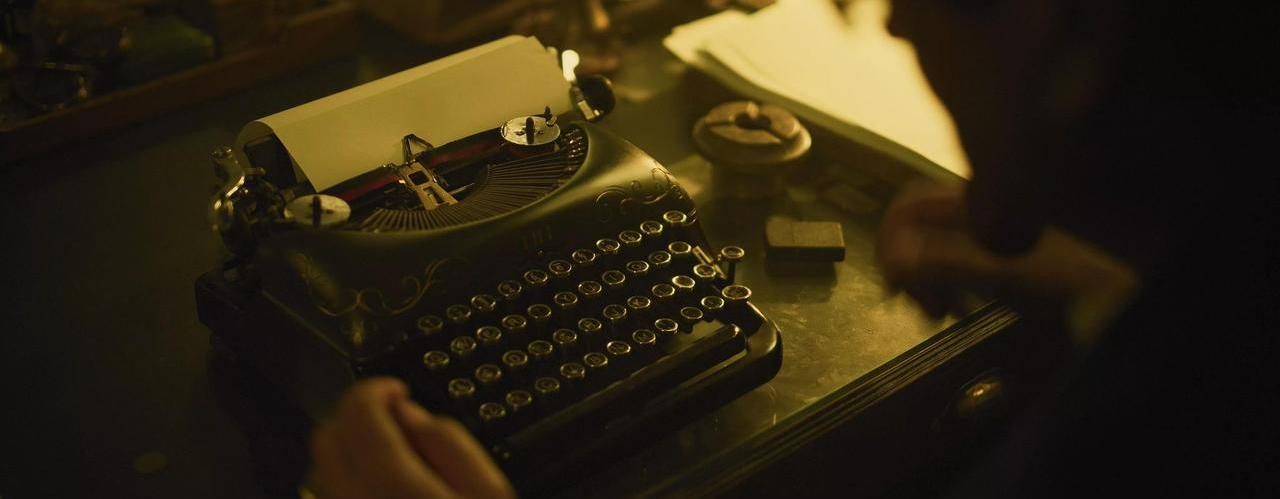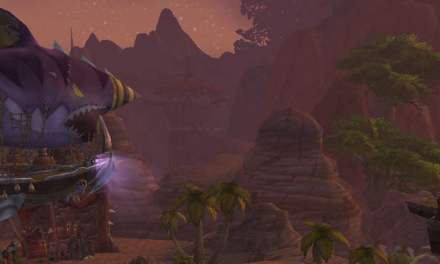This writing sample represents in a small way the heresy which has come to define the tattered legacy of Theston Metrulis III. A failure on all fronts, he abandoned his mortal family, he abandoned his immortal family, and in his stubborn and willful naivete he very nearly brought ruin to all who share his blood. Let no more remembrance be had of him save to serve as an object lesson in the foolishness of ignoring the tried and true methods of our wonderful Camarilla. Teach your childer well, lest their sins stain the rest of your pedigree.
—Robert Blackwell
Master of the Hunt
She was, of course, not your mother by birth, but she was more responsible for your embrace than any other save perhaps myself. I hope that—in some small way—through these words you may know of her and the life, the love, we shared. She brought life to a world robbed of its color, and her mere presence brought to me an inspiration to craft and create the likes of which I hadn’t felt in decades. There is so much more to this, our story, but know that you are no less special to me than she was. May you ever bring light and joy to those around you, as you have to me.
I entered Dawn’s story late one evening in 1983—just days after her seventh birthday, I later discovered. Her parents had taken a family stroll through the city park, and her love of plants and animals lead her to separate from her parents, eventually becoming lost. I have not had opportunity yet to explain to you the secondary curse my embrace placed upon me, but know that I am hard-pressed, even in these nights, to find inspiration and my own creative spark fanned by beauty and serenity rather than hate and pain. I found her on a bench in that same park, crying for her lost parents. Something within her sparked a fire within me I had not felt since I took breath with mortal lungs, and I felt for the first time that perhaps salvation was possible. I escorted her to her parents, but even long after they had returned home, I stood in the park, unable to move, the thoughts and images—the stories—flashing in my mind.
When I returned to my home, and to this very typewriter, my fingers flew with all the speed our Clan can muster. I wrote an entire novel that late evening, my first in more than ten years. You are far too young to know what it is to be an artist and be without inspiration for a month, let alone a year, or ten times that or more. The sweet release of creation is ambrosia, and I drank deeply. The book was published and was more widely received than any of my prior works. This young girl, Dawn, in one night with her gentle grace and innocent joy, had given me more to write about than everything I had seen in nearly a century of human experience.
Over the course of several years I subtlety encouraged her parents, without their knowledge, to help further their daughter’s writing gifts, of which she had many. I have little doubt that, in fact, she at that age was more talented than I, even much later in my schooling. By the time she had entered high school, she had secured a scholarship to the University of Puget Sound, and I had published three more novels and a collection of short stories. In fact, I had begun doing something I never at one time saw myself able—I taught. The course was “Appreciation of the English Language” and I did my best to share my love of the written word. Keats, Shakespeare, Byron, Whitman, and sometimes a bit of my own work made it into the curriculum. I enjoyed teaching, but primarily due to the one or two students each year who understood the written word as I did, those few who had a passion and a drive for the language.
As children do, Dawn grew and graduated high school, with all intention of attending the local college. I acquired the video of her receiving her diploma, and cheered along with her parents as she strode confidently into the wider world. My teaching continued twice a week, and to my surprise and exceptional joy, she arrived as my newest student for the Summer term. She wanted to “maintain her studies prior to college,” she said on the first day. I helped her develop her own personal style and already considerable ability. Her aptitude for language was outshone only by her desire to learn and create more, to evolve her art. Over that briefest of summers, we became trusted friends. Even as she began college, she spent time in my classroom to assist struggling students with a fervor I could have never dreamed. More nights than not we spent together, discussing favorite passages, whole texts, and even our own styles as they related to the great artists of the past. Know that there was nothing untoward in our meetings; we were writing peers enthralled in the love of creation across all genres. Though undoubtedly we shared an emotional connection, not once did we become physical—such was not the nature of our relationship.
I was there for her through her entire collegiate stay, and we wrote libraries’ worth of work. I mourn the loss of so much of her genius, but you will learn of this soon enough. In short time she had completed her degree and even had a novel published. Were I her true father I could not have been more proud. She had grown into her full potential—not just beautiful, but with a mind that saw stories and inspiration everywhere she looked. In the nights following her graduation we stayed up until nearly dawn, talking at length about her plans for the future, the expected success of her publication, and how long we had known and helped each other grow and learn.
It was when our conversations turned to that fateful topic, some glasses deep into our bottles, when I made at once the greatest error and the highest achievement of this, my century-long unlife. Perhaps it was the wine, or the comfort I found in her company, or simply a slip of awareness, but I was caught completely unawares when she asked me “Theston”—for we had far outgrown the formality of professional titles, and I was again at this time using my given name—”do you remember the night we first met?”
“But of course, Dawn, how could I forget? You had the most enthusiasm of anyone in the class; you walked in and demanded to learn, to hone your ability to create and—”
“I said the first night we met,” she interrupted. “I’m sure you remember.”
“I’m afraid I don’t know what you mean,” I stammered, hoping against all the fear in my breast that she didn’t remember. She couldn’t remember—it would be my undoing.
Cocking her head, she gave me the look my mother would cast when I would fib as a child. “That cold night, in the park? I had become separated from my parents and a gentleman, severe in expression over his wire-rimmed glasses, whose face softened as he heard my pleas, stared at me as if I were an animal he couldn’t identify, as if a man seeing the ocean for the first time. Do you remember, Theston, how you told my parents to keep an eye on me, that I was someone special? You watched us walk away as if entranced.”
I imagine she found a bit of joy in my inability to respond, for a small grin made itself known upon her soft lips. I could do nothing but sit slack-jawed, caught in my own fault, my whole world unraveling. “It’s your eyes,” she continued. “I had my doubts, but as we spent more and more time working in earnest, I saw how you looked at me; the same way you looked at me that night more than fifteen years ago. And in all that time, you haven’t aged a single day.”
A silence grew between us, as palpable as a third member of the room. Where was I to begin? When Dawn had an object of study, she didn’t cease her research until satisfied she had read all there had been writ, and nothing short of the grim truth would sate her. How do you tell someone you are a monster; a beast that preys on the defenseless and drinks of their blood for sustenance? How could I tell the one jewel I had that her teacher and confidant was damned?
Eventually, slowly, I began with my own sordid story, perhaps trying to scare her or at least to curb her interest. I have not discussed my past with you, but perhaps one day you will learn the tale of my wife, and how this dark gift blessed her as much as it condemned me. I continued by telling her the horrors I had seen and written about in my long travels—the only source of inspiration I could find in this monstrous life, before she came along—but her young spirit remained astoundingly bright. She prodded me about the beauty I had seen over the course of my life, the lone blades of grass a vibrant green against the bloodied mud.
Our discourse continued over three nights. Each morning, against my wishes, she watched me fall into my daily slumber, dark and thankfully dreamless. Asking unending questions about the people and places I had seen, the things I could do, and any and all other new abilities and insights I may have gained. I showed her how my heart lay still in my chest, unless I chose to have it beat, and how I no longer required breath or food, though unlike most of my—our—kind, I can stomach it for a short while and still experience its taste.
I demonstrated the various powers associated with our family, from speaking directly to her mind to currying favor from strangers with my very presence. She was inquisitive and often stopped me in mid-sentence to ask about a specific point or item I may have glossed over. I grew to enjoy our talks, once I felt confident that her enthusiasm was genuine and she didn’t think me some infernal creature sent to “spread sin and damnation,” as I have heard once or twice. Still the knowledge that every word I spoke would be another nail in both of our coffins kept me hesitant, but I would have done anything for her.
The beginning of the fourth night, that fateful night, opened with Dawn entering my bedroom at the moment of my awakening. I had given her a key some time prior and had almost become used to her frequent comings and goings. As I rose, with a coy smirk that never failed to bring me a smile, she said the two words that would change both of our lives forever: “I’m ready.” To say she sent me reeling is to say the sun is a tepid flashlight. And yet, somehow, I had seen this coming—through all of my attempts to dissuade her, she pressed on with her questions and queries, never sated with a short answer or a topic left intentionally incomplete.
We argued that night, back and forth, I that she had so much to live for and that the embrace could very well destroy the amazing amount of inspiration and creative she could express almost at will. Such an act would entail her death, and I could never have harmed her, let alone to that degree, even though our conversations had damned us both. Sitting back, she gazed at me coolly—measuring her words, or perhaps gauging me—and simply said “you found me, and your writing is superb. And even if it does harm my intellect, I’m sure you can ease me back into the creative genius you’ve helped me develop. It’s time, Theston, I want this.”
How could I respond? I very well loved this girl, now a woman, who inspired me with no hint or taint of tragedy. I sat her down, softly caressed her cheek, and explained the process as I understood it, what she would experience based off my own embrace decades prior. She would feel exquisite pleasure by sheer nature of The Kiss—as it is called—and quickly lose all strength of body and spirit. She would hover on the brink of death, drained of all blood, but taste a nectar such as she never had, satiating and sustaining in a way no mortal food ever could. Awaking, she would know for the first time the feel of Hunter, or as some call it “The Beast,” and it would take every ounce of will she could muster to avoid succumbing to it—this may be the first but by far not the last time she would feel its grip on her heart.
Even with that final warning, she showed more resolve than I could have expected. Slowly she cocked her head to the side, soft red tangles framing her face, and gave me the slightly reprimanding look to which she knew I couldn’t say no. You may wonder what I felt for her that I would give her so much, tell her so much about this existence. You will find as you live in this faux death that passions, once bright and vibrant, are most always only shades of their living counterparts. Emotions, after a time, become dulled, much less alive or enthralling. Dawn was a muse to me—allowed a verse and thought to flow from my fingertips as if it would never end. For the first time since my embraced by my loathéd wife, I felt the tangs of human love grip my long-cold heart. I would have given her everything, had I everything to give.
Sighing and closing my eyes in regret, but feeling a macabre excitement—this was something I had never done before, both taking a life and creating unlife—I looked back to her and met her soft gaze. She nodded, fearful but resolute, and I cupped her soft cheek in my cool palm. As gently as possible, I kissed her brow as I moved her hair, revealing her young neck. With one last sigh, resting my forehad against hers, I felt my canines elongate as the Beast anticipated the fresh and warm blood coursing through her veins. Never letting my eyes open on what I was doing, my lips found her bare jugular.
Times are a great deal different now than they were during my waking life—propriety and etiquette had a higher importance at one time than they do in these modern nights. She and I had shared no physical intimacy to that point; neither kiss nor anything beyond. I may have appeared to be a hip and new-age twenty-something, had I desired, but I have always been a gentleman of the 1890s at heart, doing my best to remain proper and aligned with to the social expectations of my youth. At that time, a man and a woman only engaged in personal relations if they were in an official and right relationship. As such, even though we spent many nights in our five years together, we never entertained anything other than both a professor-student relationship and a fully-formed friendship. I make a point of this more for her honor than my own, to let you know more the type of person she was—someone as full of respect and calm patience, and a healthy amount of respect for etiquette, as any from my own time.
She inhaled sharply as I pierced her tender skin, as the passion of the Kiss took her in. I had fed on students before, and with the multitude of pupils who needed private instruction to pass my rigorous courses there was ever a constant supply. Never before had I preyed upon her. This was no simple feeding for sustenance—this was the passion of creating, and we both knew it, even caught up in the throes of a closeness no physical intimacy could match. I am loath to sound like the monster we all harbor inside of us, but she tasted like sunshine; bright hope and pure confidence. Absolute trust. She tasted of the love I once felt deep in my breast but had for so many years been without. Perhaps just prior to that moment I had merely been enthralled by her and her effects on me, but I know as an absolute it was that moment, at her most vulnerable and I at my most predatory, I discovered I loved her. From that moment on, there existed nothing in this world that could make me betray or voluntarily hurt her in any way. I would give myself for her, and wish nightly that I had been able to remain true to those convictions.
This is not the time for me to detail the process of siring a childe, as your mother’s tale is still unfinished and I am still rich in memory. When she awoke, no longer the woman I had seen her become, she found my concerned face bowed over hers—I am come to understand that the embrace is far from a fool-proof process. Her face was flushed with the blood—the vitae—I had invested to her, and her eyes dashed about, recovering from what I had done to her. They were open wide and unfocused, wild. I had fed her enough that the Beast wouldn’t maintain its hold on her for long, but we all have run that first gauntlet after our Embrace; I’m sure you vividly remember yours, for I surely remember mine, even so long removed.
For the rest of that evening and all of the next she avoided me, shuddered when I came near. For the first time since my Embrace I cried. Our kind cry not salt tears as we once did but rather bitter tears of pure blood. I thought she had loathed what I had done to her and that she was forever embittered against me and everything I had taught her. I hated myself. After two weeks however, she emerged from my guestroom as calm and composed as ever she had been. I had sent her food, as base and banal as pints sourced from a local blood bank could be, but it seemed to serve her well enough. She walked into my room, for she rose earlier than I, with a bright grin on her pale face. There simply aren’t words for the relief I felt that warm eve.
The volumes and tomes we had created to that point were merely motes of dust when compared to the library of written art composed from that night on. Historical fictions, fantasy, short stories, poems, novels of philosophy; we wrote books on every subject imaginable. We toured art galleries after hours and gazed at pieces innumerable and invaluable, walked along Puget Sound and rode the many ferries. As we strode the night air I instructed her in what arts I knew of our family—though I myself had little frame of reference, she was a very quick study, especially in the use of heightened senses we Toreador are known for. She could read more into people’s emotions and read their thoughts far better in one year than I could in twenty, though I do not deign to boast my teaching ability in this area—her aptitude for such subtle perception was astounding even prior to her embrace.
After her change I left my teaching position and allowed my artistic and financial holdings to cover our expenses. I did not live richly, nor above my means, but of course wished to keep both Dawn and myself comfortable and without worry. I had not spent a great deal of time in the Kindred courts, having little stomach for the politicking and constant backstabbing that so reminded me of my own cursed sire, and so doubt many noticed when I stopped attending altogether. At that time I felt the courts had little to teach either my childe or myself. No matter how happy and carefree our nights however, some nagging fears should have been heeded.
In the spring of 2000, three years after her embrace and after laughing off the “millennium doomsday” with a glass of wine on the New Year, my fears were to be realized. I awoke one day, even through my heavy-lidded haze, to find strange men filling my poor home. Lethargic in the vile afternoon hours, they overpowered me, even as I surged vitae into my muscles at the sound of Dawn’s screams. Quickly they impaled me with a stake of redwood and my world went black. It is with dry humor I offer the following advice: do your best to avoid developing “a bad case of splinters” as it is macabrely called these modern nights—such things lead only to ruin.
When I again became aware of my surroundings, Lady Moon again walked the sky and my limbs were tightly bound with tough cord. I felt the sucking wound from whence they removed the stake and I could hear voices, most of which were unknown to me, though some discernable as several of the most public and powerful kindred in the area, the Prince’s foremost. My sight returning, I was chilled to the very core; more vampires than I had seen at any time in my life stood before me—a Grand Elysium had been called and we were to be the night’s entertainment. In the center of the ballroom, next to a similarly-bound Dawn, knelt I, surrounded by malice-filled, grinning vampires.
Before us sat the Prince, a Ventrue of no small regard or bearing, his throne a visible sign of his power and renown, behind whose impressive form stood three grim persons, all grinning with vile intent. The Prince had I met but once before, when I had arrived in the Seattle domain and had presented myself to him as is proper and required for residence and protection. I had been to very few gathers in my twenty-some years in the region, and did my best to remain unnoticed and unaffected by the goings-on of the political strata.
“Theston Metrulis the third,” the Prince began to speak as the crowd’s murmurs dulled, a sinister curl to his lips creeping into view, “you have done a very vile thing; you have broken the Fourth Tradition, in open defiance of my, and thus the Camarilla’s, laws.” The assemblage began to snicker and the Harpy’s countenance became one of decadent cruelty, looking forward to what he knew was coming. As the Prince continued, all in attendance held their breath for what they were sure would be a long-remembered event.
I had not yet taught Dawn about the Traditions, and though I am sure she didn’t know what law I was to be punished for breaking, the tone and manner in which the Prince spoke left no room for misinterpretation. “You defy your Prince and your domain. You laugh at your sect and at its officers. The right of progeny is mine and mine alone to grant. Taking such a thing upon yourself, as you well know, warrants but one singular punishment.” He paused to allow the Harpy to open the book he carried as a sign of his station, his gnarled and twisted fingers flipping pages with practiced ease, presenting a specific page to the Prince.
“You have lived in my domain, under my protection, for more than twenty years and yet,” he paused as he found the record he sought, “you have been to fewer than ten public gathers, and none of my Grand Elysia. We hold public gathers monthly, Theston. Were you simply too busy to grace us with your presence?” Members of the assembled clans snickered as I knelt, shamed and revealed in my transgressions, being berated for my actions and inactions both. There would be none to speak up for me—I had made no allies, had made no friends in my time there. The domain would continue with hardly a mention of this writer from Monterey, aside from his audacious crime and resounding and undoubtedly torturous punishment.
The Prince, ever collected in his tailored suit and immaculate appearance, smiled coldly and nodded to the Sheriff who, grinning wide, extended razor talons from his fingers and strode towards us, his instructions clear. As he raised his palm to slash Dawn such that she would never recover, my heart tearing, the doors to the large salon were thrown open, the Scourge standing haggardly in the entranceway. His clothes torn and bloodied, hair ripped out in patches, his frame wracked form exertion, he addressed the Prince hurredly. “My lord, the Sabbat are attacking—they are headed to your haven, destroying any Camarilla kindred they find in their path. If we wish to hold the city, we must respond immediately.”
Our Sheriff, poised to strike down my love, my inspiration, my friend, my childe, stayed his hand at the dismal report. Shaking with rage, the normally calm Prince rose from his throne in fervor. Addressing the assembled domain, aghast at the news of rampant destruction, he roared as an animal untamed. “Primogen! Call your clans to war! March on the city core and prepare to destroy the heathens to the last!” Rising from his throne, he strode past without acknowleding our cowed forms. “Lock them downstairs. Separately.”
As he lead the charge out of the room, calloused hands grabbed me from behind and bodily lead me down the back stairs. For the first time since my creation, not that I thought of such things often, I was utterly thankful for the Sabbat—they had saved, by their wanton destruction and viable threat to the city, our very lives. The final sight my weary eyes beheld that night was the closing of a cell door, barring my escape from the tight confines.
Most prisoners, I believe, do the same as I, no matter their age or origin. Beating my fists uselessly against the cold iron, I called out to my love, getting no response time and time again. I continued trying into as late in the morn as I could muster, a tiny opening in the wall letting a beam of harsh day into my new home, bathing the rusted door in fiery splendor. Unable to act any longer, curled against the back wall, as far from the blinding sunlight as possible, I collapsed into sleep, plagued with the vile sight of that monster’s claws poised to rend my Dawn in twain.
It took perhaps two more nights for me to realize the Prince wasn’t about to provide for his captives. I knew I would grow weaker and weaker without blood. I would fall into the rage of frenzy and become a monster insane, feasting off anything at hand, anything. This is how we vampires are driven mad, kept bloodless and witless for years, even decades. There is little one can do to prevent such madness sans falling into Torpor, the long sleep most commonly referred to in the context of elders, slumbering through the ages until they are ready to rise.
I had never attempted such a thing, voluntarily resigning myself to semi-permanent slumber, but I found myself successful when, as I awoke, there sat a thick layer of dust over the floor, myself, and the envelope apparently slipped under the door some months prior. I had no knowledge on what date I had awoken, but as I broke the ornate seal on the letter, I saw I had been sleeping for at least three full years. I had been victorious in surviving this long, but I couldn’t fathom how much longer I would have to endure.
The letter was written in a flowing script, addressed singularly to me. Dated February 2003, it spoke of a business-minded Toreador to the far south who had a soft spot for helping her family out of political mishap. Were I to curry favor, there was a chance I could escape to my life; indebted to this Aurora, truly, but still alive. I used the enclosed blank page and pen to scribe, using all of my talent, an ornate S.O.S., telling of the peril Dawn and myself faced, begging for help and aid, with a promise to make good on the debt, though at the time I had no idea what I could offer in return for salvation.
Folding my lifeline back into the envelope, I pushed it delicately under the solid door, anxious for a reaction, some immediate response to my please. Though I never heard a sound, my letter had been noticed and taken, though certainly I could not have known at the time, surrounded with thick stone, straining my senses to hear anything from the outside corridor. Very nearly two full weeks went by, bringing me ever closer to emptiness, and indeed during the final few nights I had existed without a mere drop of vitae in my body, on the verge of forced insanity. No matter how close I came, however, I would have held out twice that length if it would mean our paired survival.
When that door opened, I frenzied. It didn’t matter who was there, or could have been there; my Beast was starved like never before and craved food. I felt rough hands hold me down and the chilling but all-too-familiar sensation of wood piercing my heart, freezing me solid as they carried me upstairs.
Looking back at a story I wrote nearly fifteen years ago, I literally cringe at the way the prose is drafted, but I still like the overall content and the throughlines that weave from start to finish. I still remember a great deal about Theston’s greater tale, including his tumultuous embrace and the events of his stay in Sonoma County, but stumbling across some of my old work was an unexpected surprise, and one I felt worthy of retyping, for record-keeping if nothing else.
The above has seen very minimal editing, mainly for clarity, and so remains true to the words I wrote back at the start of 2005.
Header image taken from the Netflix presentation, Typewriter














